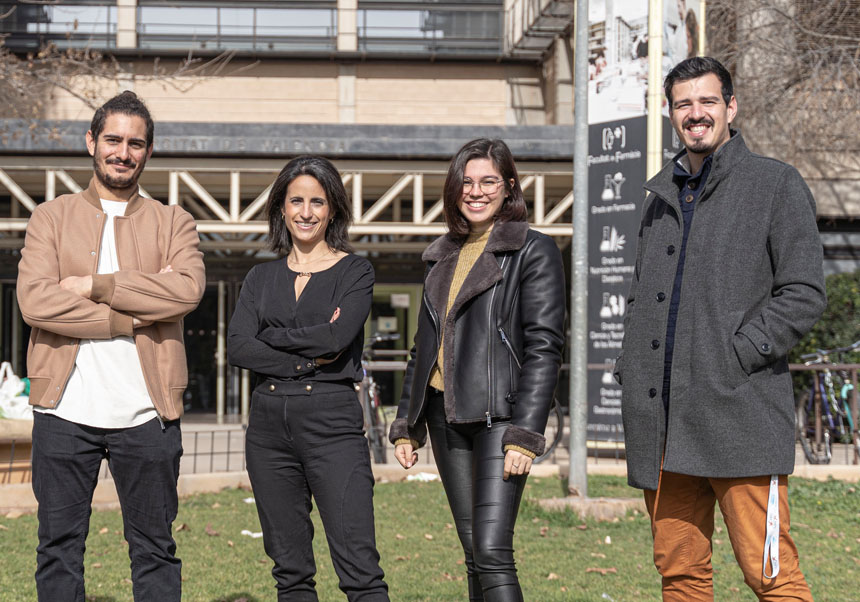Discovered that the interaction of opioids with the brain’s immunity influences anxiety and addiction in cases of pain
- Scientific Culture and Innovation Unit
- June 8th, 2023

A research by the Department of Pharmacy and Pharmaceutical Technology and Parasitology, and the Institute of Biotechnology and Biomedicine (BIOTECMED) of the University of Valencia (UV), reveals that the mu opioid receptor, a cell surface protein that allows receiving information through the binding of substances secreted by other brain cells, is related to pain and opioid addiction through neuroimmune mechanisms. The article has been published in the journal GLIA and delves into the neural mechanisms involved in the development of anxiety, stress and addiction to opioids in the presence of pain.
“This research provides novel data on how the activation of the mu opioid receptor activates immune cells in areas of the brain involved in motivation and reinforcement and, therefore, in disorders that involve negative affective states such as anxiety, stress, or even drug use disorder of abuse. This mechanism is a matter of debate, since the interaction between the immune system and the signaling through opioid receptors, which is activated when we administer opioids to treat pain, is not known in detail”, explains Javier Cuitavi, first author of the article. The study has been carried out by the DOREAL research group, led by Lucía Hipólito, professor and researcher at the Faculty of Pharmacy of the UV.
30% of the population of developed countries suffer from pain disorders and associated with it, other neuropsychiatric disorders arise. To alleviate these disorders, in some cases prescribed opioids are provided as therapeutic treatment. However, up to 19% of patients develop an addiction to them as a consequence of pain. This is worrying data, in the opinion of the research group, since, for example, in Spain, 15.8% of people between the ages of 15 and 64 receive this type of treatment.
The research team concludes that the interaction mechanism of opioid drugs with neuroimmunity should be studied in depth to avoid possible unwanted effects, such as addiction. The objective is that more effective treatments can be developed taking into account pain disorders and exposure to opioids, with which the quality of life of patients is improved. In addition, they indicate that they should also continue to be analysed due to the implication that the administration of these opioid analgesics may have on the immune system, which could have a special impact on patients who receive them chronically.
This study has been funded by the Ministry of Science and Innovation, the Ministry of Health and the Government Delegation for the National Plan on Drugs.
Article: Cuitavi J., Andrés-Herrera P., Meseguer D., Campos-Jurado Y., Lorente J. D., Caruana H., Hipólito L. «Focal mu-opioid receptor activation promotes neuroinflammation and microglial activation in the mesocorticolimbic system: Alterations induced by inflammatory pain». Glia. 2023 Apr 5. doi: 10.1002/glia.24374. Epub ahead of print. PMID: 37017183.
Link: https://onlinelibrary.wiley.com/doi/10.1002/glia.24374
















